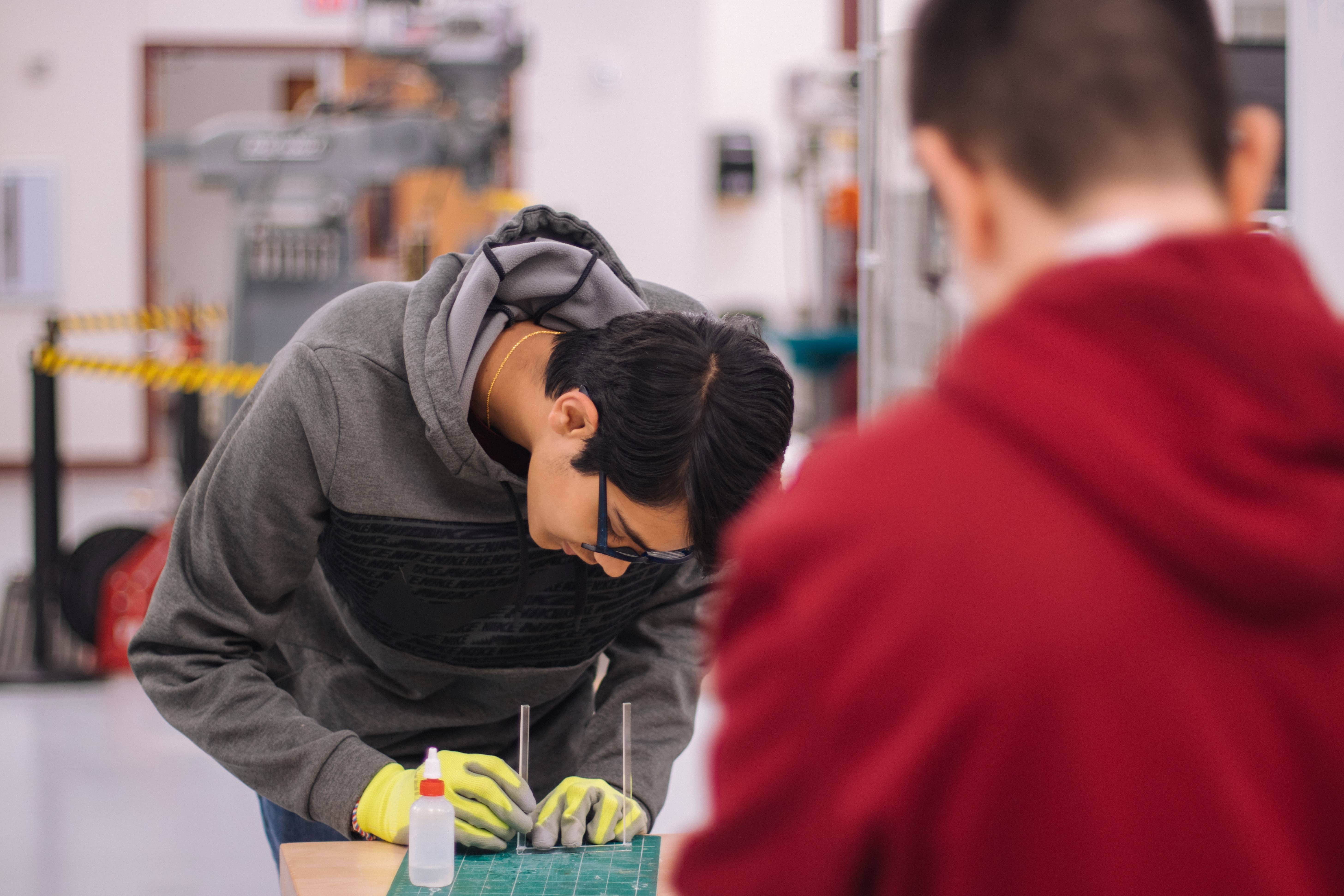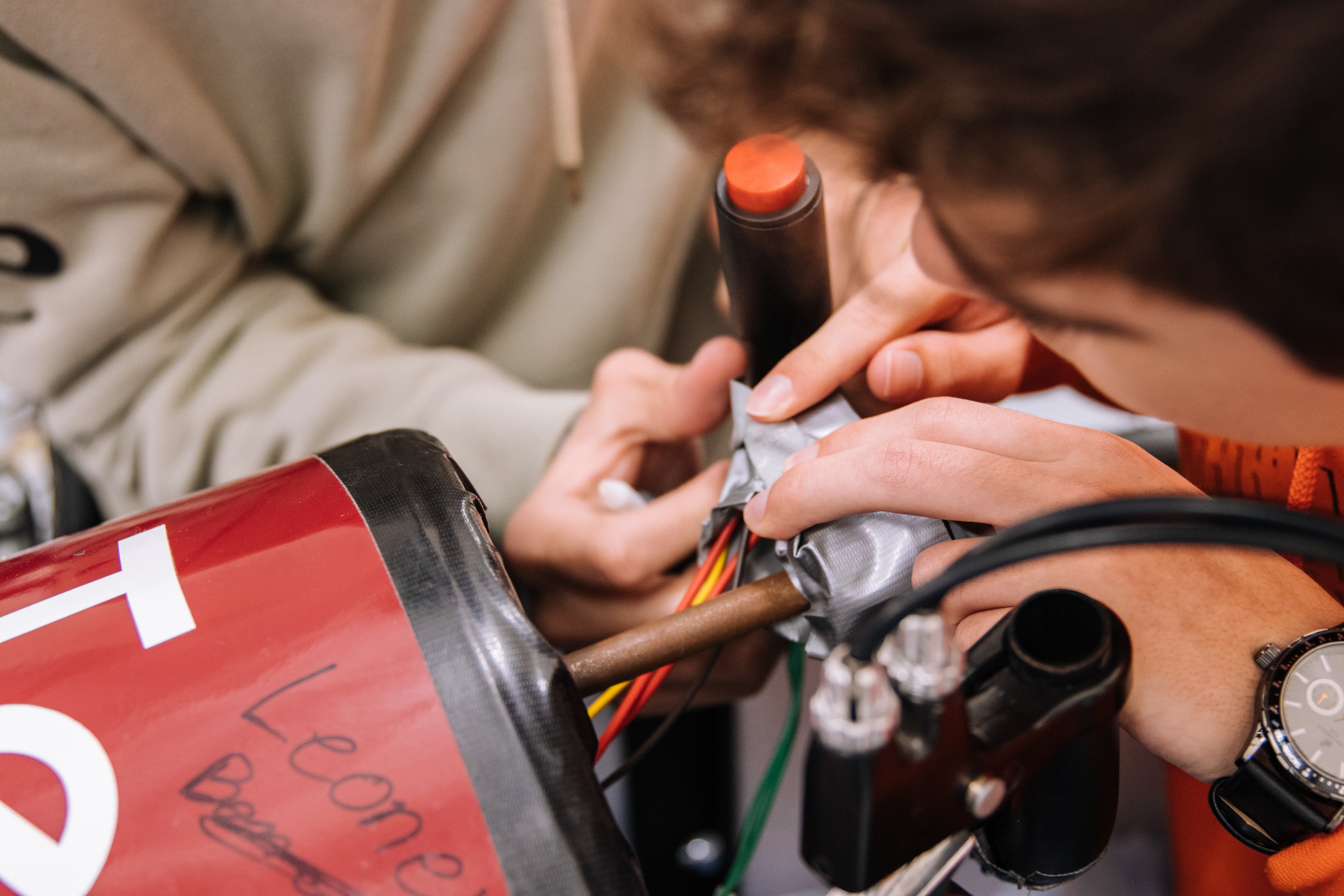Skilled trades are occupations that require special knowledge, ability, or skill that can be obtained through technical school, specialized training, or a college diploma.
There is a wide variety of occupations that are considered skilled trades in different fields. You could learn more than one trade depending on your skills, areas of interest, aspirational salary (how much you want to earn in a year), working hours, type of labor you'd like, and more.
Some skilled trades are in higher demand than others which means that the salary will vary depending on the field, industry, and type of job.
Skilled trade jobs are typically divided into three categories which are:
- Industrial Trades: welders, machinists, mechanics, tool and die makers, programmers
- Construction Trades: electricians, plumbers, gasfitters, carpenters, bricklayers, technicians, insulators
- Service Trades: nurses, aides, orderlies, therapists, service technicians
Not every trade job is similar, this is why you can have someone be an electrical specialist, and someone a dental or medical specialist, and even though each field is different, they're all part of the skilled trade wing.
During the pandemic, the global economy suffered and the job market became unstable and insecure. However, this was not the case for every field and it seemed like skilled trades became increasingly popular.
These jobs were booming during the pandemic in the United States and continue to be on the rise during the present day. This is why so many people switched career paths and jobs these past few years.
However, many people don't know how to make a career shift. Others are scared of the training hours that require learning a new skill, others are scared of making the wrong decision, and some are simply worried because they don't know where to get started.
To make such a life-changing decision we recommend you first do your research!
Don't forget that you can always find a private tutor right here on Superprof to help and guide you through the process. Tutors can give you tips, lessons, learning resources, and more.
Continue reading and understand what are the qualifications you need for specific skills, what are the prerequisites for schools or private diplomas, what trades have a college major, and how to start gaining knowledge.

What qualifications are needed for specific trades?

There are plenty of different options for professionals interested in building a career in skilled trades. The key lies in knowing exactly what path suits your personal situation better.
For instance, the paths are different for high school students who are looking for opportunities after high school and professionals who are no longer students and are interested in doing a career shift.
To get started you first need to decide what skilled trade you'd like to learn and pursue. Once you have decided what path to take, you can start researching that specific trade.
For example, you can understand what is essential for the skill you're interested in. If you want to become an electrician, you can look into the equipment you'll need to have or the technology you'll have to learn about.
The qualification for each profession can vary, but generally, any person needs a certification, apprenticeship, college diploma, or any other kind of education.
Below you'll find a list of the most common trades and what qualifications are needed for each one.
Electrician
If you want to become an electrician you can do it by getting a college degree or going into an apprenticeship. If you get a college education you can get different diplomas.
Or instead, you could do an apprenticeship. You can do one in installation and maintenance or a domestic one.
Mechanic
Your education path to becoming a mechanic will depend on the type of mechanic you want to become. For example, if you want to have a job in manufacturing, you want to become a technician, or you're only interested in cars, then your options and opportunities will vary.
You can do different apprenticeships or get a certificate in one program and then search for more specified programs in automotive mechanics. Keep in mind that getting one certification won't get you very far, especially if you want to have technical and essential knowledge in the field.
Welder
If you are interested in welding technology you have a wide variety of options and opportunities available. You can become an oil rig welder, underwater welder, industrial pipeline welder, aerospace welder, certified welding inspector, nuclear industry welder, certified welding supervisor, and much more.
Many of the workers in the welding field are certified professionals, others only have training knowledge, and some have degrees from a school.

What requisites are needed to pursue a career in skilled trades?
As it was mentioned before, the requisites also vary depending on your field of choice. Requisites vary depending on the industry because each job, training program, or certification is different and caters to different needs.
For admission, schools will typically ask students for the basic requirements. These are a minimum GPA in certain high school classes, good scores on the SATs or other kinds of tests, and some careers in the sciences that'll have more things required.
Aside from any prerequisite required for school, you need to keep in mind that skilled trades are hands-on work and a level of manual skill is needed.
If you feel like you need help in this area, you can always hire a private tutor from Superprof. A tutor can give you tips, guide you, hand over necessary resources, tell you what kind of equipment you need, work with you to improve your skills, and more.
You can search for a tutor in your area right here on Superprof just by adding your subject of interest and the city you live in. There are also plenty of tutors who offer their lessons online.
Attend school
If there are college majors for the skill you're interested in pursuing, then we recommend you get your bachelor's degree.
For instance, if you want to become a nurse you have to go to nursing school. Nursing is a type of skill trade that has a lot of hands-on work but also the person needs to have a good and profound understanding of many medical concepts.

Without any prior experience, it takes around eight semesters to obtain a bachelor's diploma. However, students who have an associate's diploma or major college credits finish their studies in one to two years.
To apply for any university in the country you need to have your high school diploma, recommendation letters, SAT scores, and other paperwork. You can work with career and academic advisors to choose a major aligning with your career goals and expectations.
Keep in mind that you can expect to earn a better salary if you have better professional preparation for any trade. This means that anyone with a college diploma, years of experience in the same field, and several certifications in their resume, will earn more compared to someone who is starting out and doesn't have a degree or certifications.
Experience is key

Many people fail to understand that sometimes all you need is time and patience. Learning to master a skilled trade won't happen overnight. To become a master, you need a long professional trajectory that combines courses, diplomas, apprenticeships, and years of experience.
Nothing can compare to the power of experience. For instance, a student who graduated with honors and had great internships, and did a lot of extracurriculars in their skill of interest is still at a disadvantage compared to a professional who has 20 years working in the field.
This is why it is important for students to understand the value of experience over time. Being in any industry for years will give anyone the upper hand and the knowledge to excel at their job.
If you are getting started, you need to make sure you prepare yourself and know what skilled trades are, from then, you can start researching for apprenticeships, tutors here on Superprof, or online courses.
This is the only way you can start gaining experience in the field and building a career as a tradesperson. Keep in mind that you must be patient, be in a constant state of learning, and work hard towards your goals.
Résumer avec l'IA :









